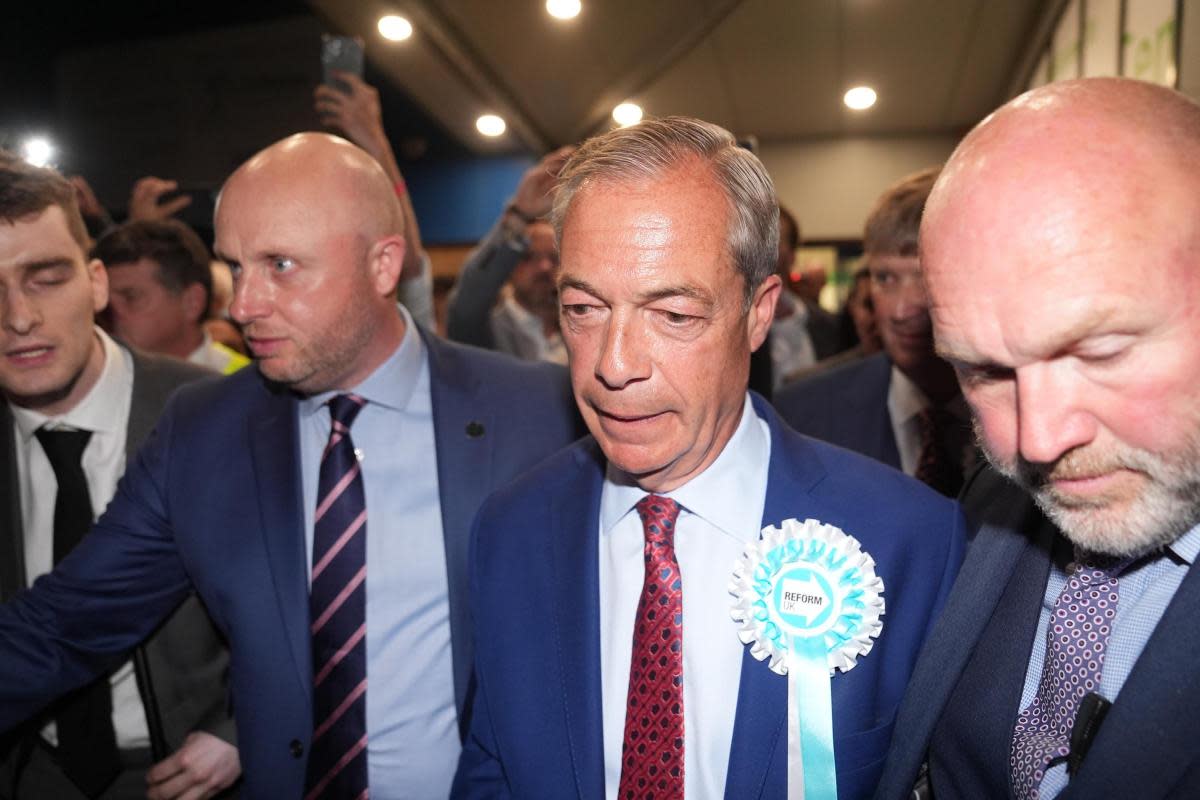The reasons why Nigel Farage and Reform UK have picked up political momentum

NIGEL Farage has become an MP on his eighth attempt after riding an increasingly popular right-wing wave in the UK.
Not only has Farage managed to build a successful Westminster campaign around right-wing populist politics for himself, but he has also managed to drum up support across the country for his party's ideologies.
Seen mostly as an outsider by his political peers, Farage took over the Reform two weeks after Rishi Sunak called the General Election on May 22, and has managed to rally cross-country support.
The party was initially projected to win 13 seats. It ended up winning four, but surprisingly Reform secured more than four million votes taking in more than 14% of the vote share across the UK.
READ MORE: Who are the big political returners at Westminster?
It is a feat that seemed unattainable just months ago and now raises questions about how Farage has managed to gather so much support for Reform.
The party leader has managed to tap into the same populism politics used by his friend and ally Donald Trump which has been so successful for the former US president.
Even closer to home, right-wing politics has gathered momentum throughout Europe with Marine Le Pen’s hard right party looking to be on the cusp of winning power in France.
Speaking after his win in Clacton-on-Sea, Farage told a room of cheering supporters, “There is a massive gap on the center-right of British politics. It is my job to fill it.”
He then went on to say: “My plan is to build a mass national movement over the course of the next few years, and hopefully it’ll be big enough to challenge the general election properly in 2029.”
Reform UK are a party who rose from the ashes of Farage’s former and now defunct Brexit Party which failed to win any seats in the 2019 General Election – a completely different story five years on.
His appeal to voters is mainly concentrated on people's concerns over immigration, anti-establishment rhetoric, and supporters of Brexit.
Disgruntled Tory voters were always a prime target for Farage as he hoped to change their allegiance to a different shade of blue.
Reform came second in more than 100 seats. They even managed more votes than Alba and the Scottish Greens combined in Scotland, suggesting they could become even more of a force in future elections.
“To have done this in such a short space of time says something very fundamental is happening,” Farage said in his acceptance speech earlier today.
The real question is how far will the political pendulum swing to the right in the UK and will Farage be able to continue to woo voters with his “stop the boats” rhetoric.

 Yahoo News
Yahoo News 

